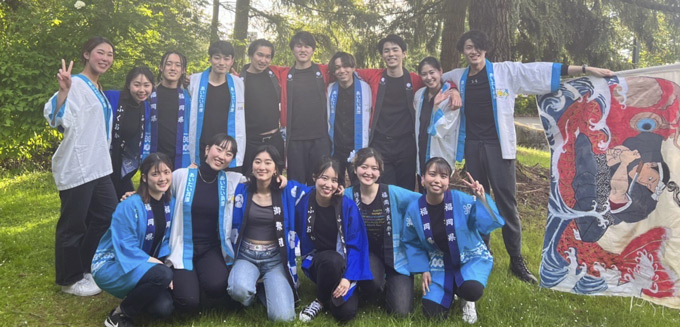By Reika Nishiyama For The North American Post
“Study abroad to realize the charm of Japan.”
When I first read this message on social media before coming to Seattle as an international student, I could not understand its meaning. To tell the truth, I had negative impressions of Japan rather than positive ones: an aging population, political corruption, labor problems, declining food self-sufficiency, etc. I could not say “I like Japan!” with confidence.
Seeing Japan more objectively since I came to Seattle, I have realized how unique Japan is in the world. For example, in a textbook for my sociology class, it is seriously and academically written that “Japanese students clean their classroom after classes” and “Japanese classes are divided into small groups called kumi/han. Because it was natural for me, I felt confused but also interested. Also, interacting with people who have different backgrounds made me realize many interesting and respectful customs and cultures in Japan. For instance, there are the greetings such as “itadakimasu” (I gratefully receive your food or gift) and “ittekimasu” (I will leave now and return later) and many similar expressions showing respect to others.
Moreover, I have been surprised at how highly the uniqueness of Japan is admired all over the world. I could not forget the excitement of the audience when we performed “Soran-Bushi” at Bellevue College. I was very glad that the dance that Japanese people have practiced for sports days at school was valuable as a cultural exchange. Furthermore, I often meet people who are studying Japanese.
Sometimes, waitresses at coffee shops say “Arigatou gozaimashita.”
It is a small pleasure to find Japanese things in Seattle that remind me of Japan.
It is true that Japan has many problems to solve. However, it definitely sums up my experience to say that I could not have realized the unique charms of Japan had I stayed in Japan.
“Study abroad to realize the charm of Japan.”
I am starting to grasp its meaning.
Editor’s note.
Various writers and teachers have expressed the theme over the years. The olden-day kotowaza, “Kawaii Ko niwa Tabi wo Saseyo” (Let the beloved child travel), approaches it. More recently, YouTube master Japanese teacher Miku of “Miku Real Japanese” shares her perspectives at:
“Why I’m glad I left Japan” (11 min.), and
“Why I stayed in Japan after I came back” (10 min.)
Both videos are in everday conversational Japanese. If this is a problem, consider refreshing your rusty Nihongo before the next NAP trip to Japan (possibly spring 2023).









